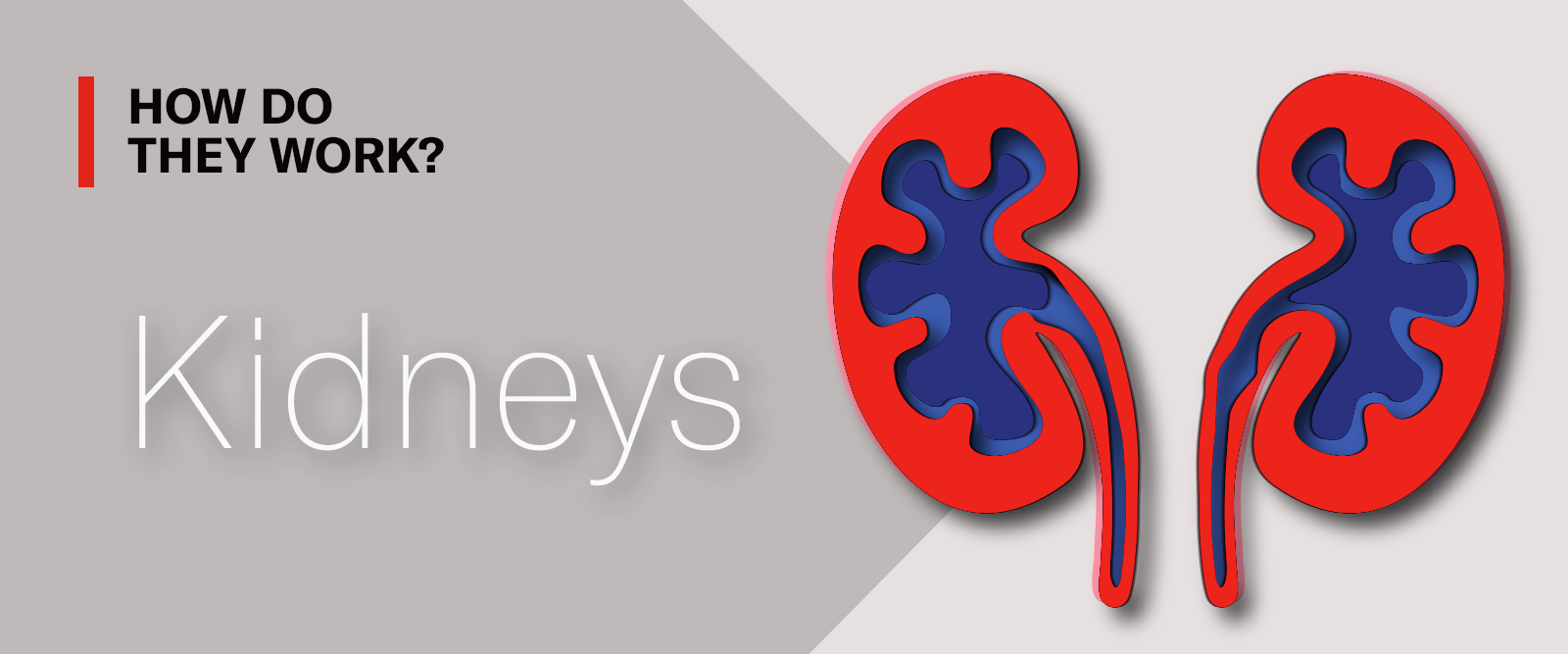Understanding Kidney Health
A nephrologist explains the vital functions these organs perform and how to keep your kidneys healthy.


Kidneys — two bean-shaped organs, each about the size of a fist — perform complex and vital functions in our bodies, removing waste and helping maintain an equilibrium between body fluids and minerals. Without normally functioning kidneys, your heart, muscles, nerves, and other tissues would not be able to work properly.
To get a better understanding of the role kidneys play and learn how to keep kidneys healthy, Health Matters spoke with Dr. Darshana M. Dadhania, an attending physician and nephrologist at NewYork-Presbyterian/Weill Cornell Medical Center. “It is important to keep the kidneys ‘happy’ by having a healthy diet and avoiding toxins and excess of certain medications that can stress the kidneys,” she says.

Dr. Darshana M. Dadhania
Additionally, Dr. Dadhania, who is also an associate professor of medicine at Weill Cornell Medicine, shares symptoms of poor kidney function and what can be done to manage them.
What do the kidneys do?
Dr. Dadhania: The kidneys remove waste through a filtering process, and this process also removes extra fluid from our blood to make urine. Kidneys also work to maintain a healthy balance of water, salts, and minerals such as sodium, potassium, calcium, and magnesium.
Another function they perform is making hormones that control our blood pressure, as well as produce erythropoietin, a type of hormone that manages hemoglobin, or red blood cells. Kidneys also synthesize active vitamin D to keep our bones healthy.
While most people are born with two kidneys, a person can live a normal and long life with only one healthy kidney.
How do the kidneys work?
Think of your kidneys as a collection of strainers with very fine pores, working together to filter your entire blood volume 60 times per day. Each kidney has approximately 1 million nephrons, which hold a filtering unit called the glomerulus, where the blood is filtered, and a urine collection unit called the tubule, where the toxins are concentrated, and mineral and water balance is achieved.
Waste products produced from food and drug metabolism, as well as normal tissue function and extra fluid that the body does not need, are excreted as urine. The urine from all the tubules comes together and passes through a tube called the ureter, which transports the urine to the bladder.
What happens when the kidneys are not functioning normally?
The body is not able to remove the waste and excess salt and fluid from your body if your kidneys are not working well.
If your kidneys are injured, you may feel weak, you may retain more fluid, and your blood pressure could go up. Depending on where the injury is, good protein can also spill into the urine, making it look foamier. Over time, your urine volume may go down.
What are some symptoms of poor kidney function?
Many times, early kidney injury can be silent. Your urine output can be normal even if you have a kidney injury. It is important to have an annual checkup with your doctor for any early signs of poor kidney function, especially if you have medical conditions like high blood pressure or diabetes.
Some people present with acute kidney injury and may experience headaches, an abrupt rise in blood pressure, blood in the urine, and/or foamy urine.
When enough kidney damage has occurred, one may start to develop symptoms such as tiredness, loss of appetite, nausea, vomiting, tremors, swelling, and decreased exercise tolerance.
What are some common kidney issues?
Two common kidney issues that are easily treated are urinary tract infections and kidney stones. With urinary tract infections, a person may feel burning and have an increased frequency of urination. If this happens, you want to see a doctor and get treatment so that the infection does not spread from the bladder to the kidneys, which would require hospitalization and intravenous antibiotics. With recurrent urinary tract infections, the kidneys can become damaged over time.
With kidney stones, the common presentation is discomfort or pain radiating from the back to the groin. This may also be associated with blood in the urine. Some people may only experience a kidney stone once in their lives, while others may have repeated episodes. If you do develop a kidney stone, it is important to see a kidney specialist who can evaluate you for any genetic disorders or other medical conditions that can predispose you to repeat episodes. Depending on the type of stone, the nephrologist may suggest treatments and dietary changes to avoid future episodes.
Keeping yourself well hydrated and emptying your bladder frequently are good, healthy habits to avoid these conditions.
“The best way to keep your kidneys in good health is to eat healthy and stay well hydrated.”— Dr. Darshana M. Dadhania
Who may be at risk for developing kidney disease, or poor kidney function?
People with high blood pressure, diabetes, autoimmune disorders, or a family history of kidney disease, as well as those with recurrent urinary tract infections, are at risk for developing kidney disease. Similarly, individuals who take excess NSAIDs, such as ibuprofen, may also be at risk. And some herbal supplements can harm the kidneys.
Given any of these factors, it is important to follow up with your doctor and ask about the health of your kidneys, as well as discuss any medications and supplements you are taking.
What happens if your kidney function continues to decline?
If your kidney function decreases significantly, you should see a nephrologist to discuss strategies to avoid further decline.
If and when your kidney function decreases to less than 20%, you may need to discuss options for kidney replacement therapy with your nephrologist. Options for kidney replacement therapy include receiving a kidney transplant or starting dialysis. The kidney transplant could be from a living or deceased donor. To learn more about these options, your nephrologist should be able to refer you to a transplant program.
Dialysis is a mode of therapy where a machine is used to perform the job of the kidneys, cleaning your blood of the toxins that have accumulated. There are many options for dialysis treatment. Some types of therapy can be done at home, while others are performed at a dialysis unit. If you are not feeling sick, your nephrologist may not want you to start dialysis right away. Some people do not start dialysis until their kidney function is less than 10%. You can discuss different options with your nephrologist.
Are there ways people can help keep their kidneys healthy?
The best way to keep your kidneys in good health is to eat healthy and stay well hydrated. Dehydration can stress your kidneys. You also want to make sure that you avoid medications or substances that could be toxic to the kidneys.
It is important to maintain a healthy weight and control your blood sugar, cholesterol, and blood pressure. This is because medical conditions that affect the kidneys include high blood pressure, diabetes, and being overweight.
If you have a family history of kidney disease, you should discuss a plan for monitoring your kidneys and your risk for kidney disease with your doctor.
If you do develop kidney injury or abnormal kidney function, it is important to follow up with a nephrologist who can monitor all the functions that your kidneys should be performing and make recommendations to maintain a healthy balance of salt, minerals, and water, as well as manage anemia associated with kidney disease. Your nephrologist may also be able to make recommendations to slow down the progression of your kidney disease.
Darshana M. Dadhania, M.D., M.S., is a nephrologist and attending physician at NewYork-Presbyterian/Weill Cornell Medical Center, where she is also medical director of the Kidney and Pancreas Transplant Program and program director of the Transplant Nephrology Fellowship. Dr. Dadhania is also an associate professor of medicine at Weill Cornell Medicine and is board-certified in internal medicine and nephrology. Dr. Dadhania is an active clinician, investigator, and mentor. Her academic career has focused on the development of diagnostic and prognostic noninvasive biomarkers for the long-term success of kidney allografts and the management of highly sensitized kidney transplant patients and infectious complications in post-transplant.
Additional Resources
Learn more about NewYork-Presbyterian’s nephrology services.

